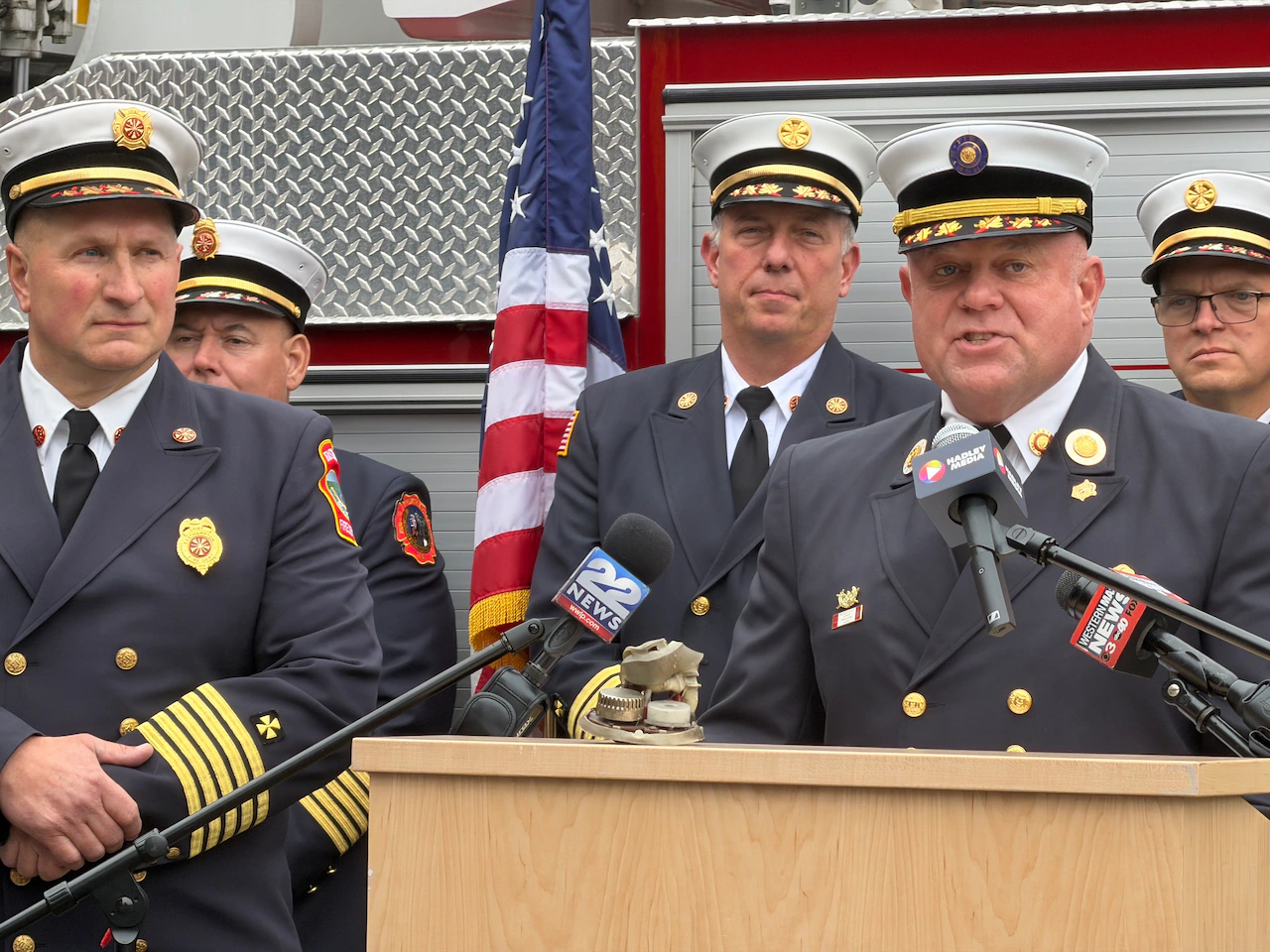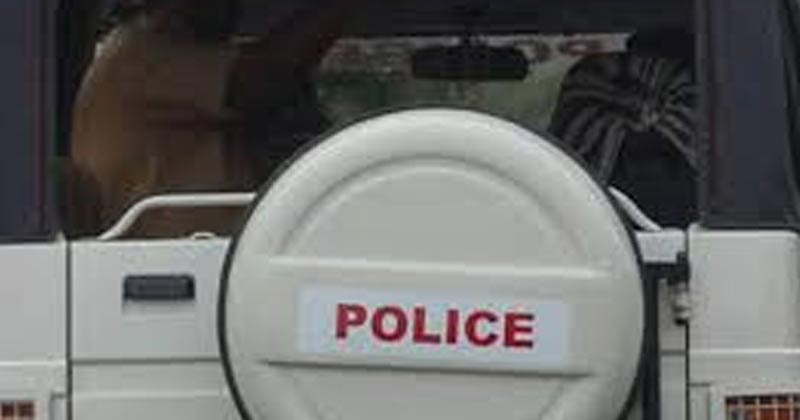Copyright MassLive

EASTHAMPTON — Western Mass. fire officials gathered at the Easthampton Public Safety complex on Oct. 29 to draw attention to a wave of smoke alarms that are nearing the end of their 10-year useful lifespans. The alarms installed soon after the 2015 Fire Code change are nearing the end of their life, which means the Department of Fire Services and Fire Chiefs Association of Massachusetts, or FCAM, is imploring the public to check their smoke alarms. Easthampton Fire Chief Christopher Norris, who also serves as FCAM’s second vice president, hosted a press conference at the Easthampton Fire Department with State Fire Marshal Jon Davine and Hadley Fire Chief Michael Spanknebel. The trio highlighted the issue so the public is prepared to make the necessary changes in the name of safety. “The state’s fire chiefs are committed to fire and life safety for all of our residents and communities. Toward that end, we’re partnering with the state fire marshal and the Department of Fire Services on an important campaign this fall,” said Norris. “It’s centered around smoke alarms, choosing the right alarms, replacing them when necessary and disposing of them safely.” The 2015 edition of the Massachusetts Comprehensive Fire Safety Code required that new replacement smoke alarms be equipped with a 10-year sealed battery and a “hush” feature. This provision was intended to prevent users from disabling the alarm because of nuisance alarms caused by cooking, or to use the alkaline batteries in another device. “One of the most frustrating and heartbreaking events we encounter is a fatal fire in a home with disabled smoke alarms,” said Norris. “Our concern is that a wave of smoke alarms in homes across Massachusetts will not be reliable in the months ahead. We’re here to spread the word that these alarms have to be replaced, just like any smoke alarms that are more than 10 years old.” Alarms purchased to meet this requirement 10 years ago are nearing or have exceeded their useful lifespan and must be replaced, according to fire officials. As the end of daylight saving time approaches on Nov. 2, the Department of Fire Services is using the annual “Change Your Clocks, Check Your Alarms” message to remind residents that smoke alarms have a 10-year lifespan. Norris said residents should check the manufacturing date printed on the back of their alarms and replace them with new alarms if necessary. The batteries should be replaced in alarms that still use alkaline batteries, according to Norris. “Last year almost 40% of the state’s residential fire deaths took place between October and December, and tragically, we found working smoke alarms at only one third of these deadly fires. At every level of the fire service, we want to make sure you and your loved ones know what to look for when choosing and replacing your smoke alarms,” said Davine. Davine continued and recommended people look for a well-known and national brand when replacing their alarms. He added that when choosing a replacement smoke alarm, the Department of Fire Services’ Fire Safety Division strongly recommends that residents and property owners select devices that conform to UL 217, 8th Edition or later. Davine told the public to look for this language on the packaging or in the product specification. These alarms use the latest multi-criteria detection technology to prevent nuisance alarms caused by cooking smoke. Fire protection experts hope that this will further reduce the risk of residents disabling these vital life safety tools after a nuisance alarm. Spanknebel spoke about lithium batteries and how their high energy density leads to potential hazards when damaged. “If damaged they can go into thermal runaway, a rapid and violent chain reaction of sparks, flames, and even an explosion. That’s why sealed battery smoke alarms should not go in your house or trash or recycling,” Spanknebel said. “If they’re crushed or punctured in a compactor truck, or a transfer station, they could cause a fire that’s very difficult to extinguish. As lithium batteries have become more common, we started seeing more and more of these trash and transfer station fires. And it’s a safe bet that the root cause is a battery damage.” He added that communities offering household hazardous material-based collection events throughout the year are the best place to bring a sealed battery smoke alarm and other lithium ion devices for proper disposal. Those looking to dispose of the item can go to www.call2recycle.org. The press conference was the third of three events held statewide to draw attention to the fire protection issue. It comes a few days before the end of daylight saving time, when the fire service reminds residents to check their smoke and carbon monoxide alarms, and change the alkaline batteries in alarms that use them. The state fire marshal’s office and Fire Chiefs Association of Massachusetts urge residents to follow these safety tips: Check the manufacturing date printed on the back of your smoke and carbon monoxide (CO) alarms Replace smoke alarms after 10 years and CO alarms according to the manufacturer’s instructions (usually after 5, 7, or 10 years depending on make and model). Choose new smoke alarms from a well-known national brand and look for the mark of an independent testing lab such as UL or Intertek/ETL. Be sure the replacement alarm has a sealed, long-life battery and a hush feature that meets UL Standards 217, 8th edition or later. Many communities have programs that can assist older or low-income residents who need help installing or maintaining their alarms. Those interested can contact their local fire department for more information.



